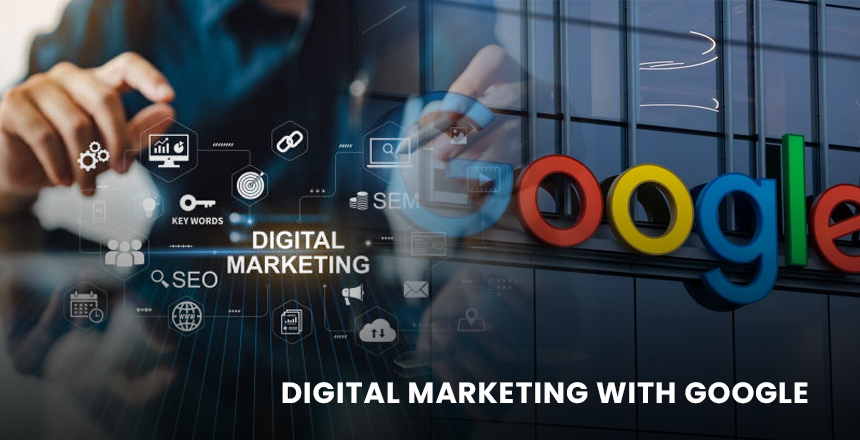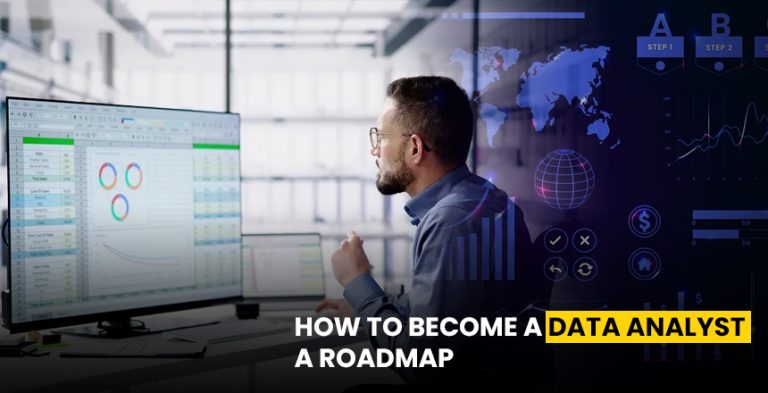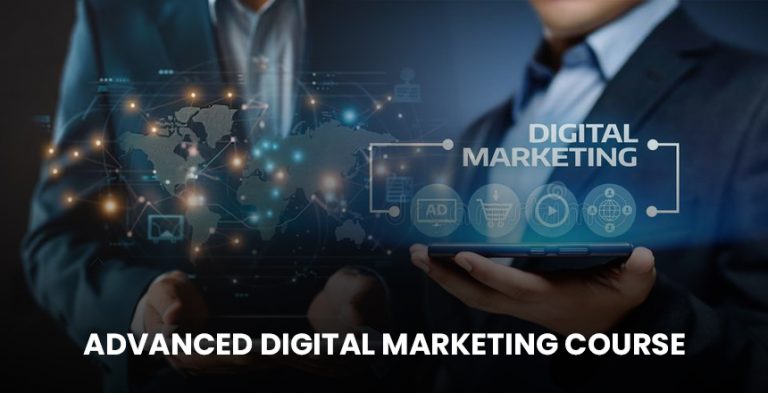Introduction
In this modern digitized age, every business is placed upon a strong online presence to continue competing with all their rivals. Digital marketing today, how and with whom, has provided some magical tools for strategies through which every business can communicate with its appropriate audience, drive traffic, and translate those into sales. No matter if you are a small business owner, digital marketing, or even an entrepreneur, this is a good time to learn about Google marketing and take that knowledge to add some extra credential to what you have always aimed to pursue in business.
It would also be very interesting if you can check out this blog on Google’s digital marketing-in particular, Google Ads, SEO, Google Analytics, and other-catching tools to plump up one’s online success.
1. Understanding Digital Marketing with Google
Google digital marketing is to make use of Google in various platforms to promote products, services, and brands. Major components include the following:
– Google Ads (Paid Advertisement)
– Search Engine Optimization (SEO)
– Google Analytics (Performance Tracking)
– Google My Business (Local Marketing)
– Google Search Console (SEO Optimization)
– Marketing with YouTube (for gen x).
All these tools work together to help with visibility, attracting customers, and increasing repatriation of digital marketing investment.
2. Google Ads: Paid Advertising for Instant Visibility
Google Ads is a powerful pay-per-click (PPC) advertising platform, enabling businesses to gain visibility right at the top of Google search results.
A. Types of Google Ad Campaigns
- Search Ads: Text ads that show up on Google search results.
- Display Ads: Banners that show on websites within the Google Display Network.
- Video Ads: Ads that show on YouTube.
- Shopping Ads: Product-based ads targeting e-commerce businesses.
- App Promotion Ads: Ads supporting mobile applications.
B. Advantages of Google Ads
- Instant visibility on searches.
- Keyword, demographic, and location-targeted advertising.
- High returns on investment (ROIs) if optimized properly.
C. Optimization of Google Ads Campaigns
- Keywords relevant to the ad but with high searches must be used.
- Write an eye-catching advertisement with an explicit call to action (CTA).
- Optimize landing pages for better conversion.
- Optimize the campaign’s performance by conducting A/B testing.
3. Search Engine Optimization (SEO): Ranking Organically on Google
SEO means Things We do to Rank Web Pages on SERPs. Unlike ads, the benefit of SEO lies in bringing free and sustainable traffic to the website over a long period of time.
A list of major SEO strategies
- Keyword Research: These are the relevant words and phrases for the product or service, and these can be generated through several search engine keyword research tools like Google Keyword Planner.
- On-page SEO: Enhance rankings through optimizing meta titles, descriptions, headers, and images.
- Technical SEO: Enhance speed, mobile-friendliness, and structured data.
- Content Marketing: Continued publication of high-quality, SEO-optimized content.
- Link building: Ways to help the site attract backlinks from authoritative websites to boost credibility.
B. Importance of SEO for Google Marketing
- Brings long-term traffic at no cost.
- Establishes trust and credibility among users.
- Provides a better user experience (UX) through the websites.
4. Google Analytics: Measuring Marketing Performance
Google Analytics is a free application to measure web traffic, user behavior, and conversion.
A. Critical Metrics to Track
- Sources of Traffic: Where visitors come from (organic, paid, social, direct).
- Bounce Rate: The ratio of visitors who leave the site without any interaction.
- Conversion Rate: The percentage of visitors who take an action (purchase, sign-up, etc.).
- Session Duration: Average time the website is being used.
B. Ways Google Analytics Facilitates Digital Marketing Recognizes high traffic generating pages.
- Monitors return on Google Ads and search engine optimization.
- Insights for improving user experience.
5. Google My Business (GMB): Local SEO for Small Businesses
For businesses that are targeting local customers, Google My Business (commonly referred to as “GMB”) is a must. A well-optimized GMB profile provides an improvement in respect to local search rankings and places on Google Maps.
A. How do you optimize GMB for Local SEO?
- Accurate name, address, and phone number (NAP).
- Post photos and videos of high quality.
- Get customer reviews to increase credibility.
- Post updates and offers regularly.
B. Google My Business Benefits
- Increased visibility on localized searches (“best cafe near me” for instance).
- Free promotion on Google Maps.
- Reputation build-up due to customer reviews and ratings.
6. Google Search Console: Optimizing Website for SEO
Be it a free tool that helps website owners see how their websites perform across search results in Google.
A. Google Search Console for SEO
- Identify indexing problems preventing pages from appearing in search results.
- Determining which keywords bring traffic.
- Identify mobile usability issues.
- Helps optimize click-through rate (CTR) using better meta descriptions.
B. Best Practices of Google Search Console Use
- Sitemap submission to help Google crawl more pages.
- Fix all broken links and error messages.
- Optimise CTR: Improve page titles and descriptions.
7. YouTube Marketing: Leveraging Video Content
YouTube is the second largest search engine in the world, owned by Google and so can be used by businesses to reach an audience via video marketing Digital Marketing
A. Effective YouTube Marketing
- Strategies Convert informative, high-quality videos into engaging video titles, descriptions, and tags that have keywords.
- Use thumbnails and captions for better engagement-promotion through Google Ads and social media.
B. Why YouTube is Important in Google Marketing
- Help improve seo rankings.
- Reach users better than text-based content.
- Brand awareness-building through visual storytelling.
Conclusion
Businesses expect different opportunities of growth online through digital marketing with Google. Be it Google Ads for paid campaigns, SEO for organic traffic, or Google Analytics for tracking performance, tools from Google assist businesses in reaching the target audience, enhancing visibility, and boosting profits.
In Google marketing, the key to success lies in constant efforts to keep up with trends, develop and implement effective strategies, and derive insights from data in order to continue improving. SEO, PPC, and analytics together strengthen the digital marketing presence of a business and drive success long-term.








